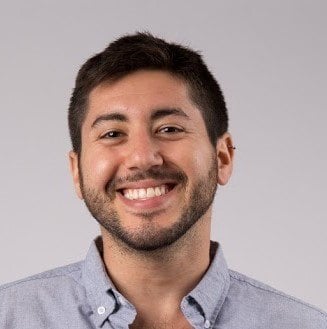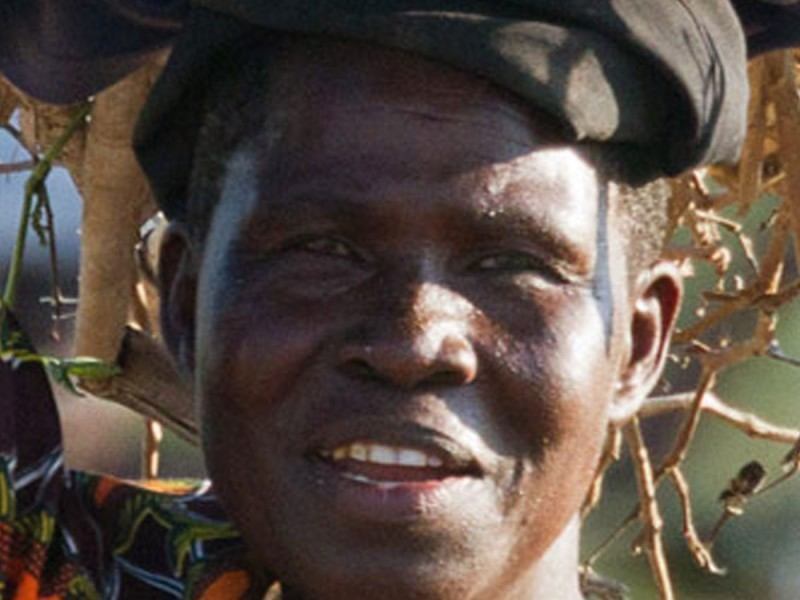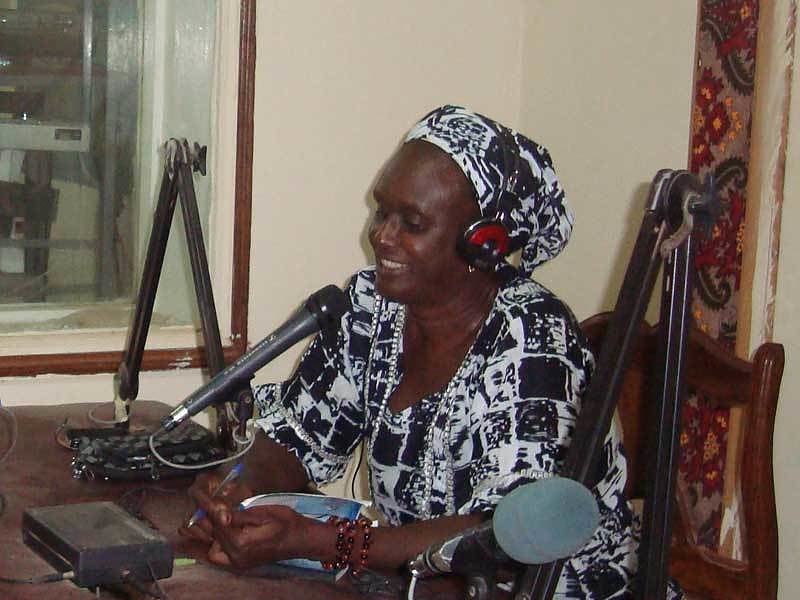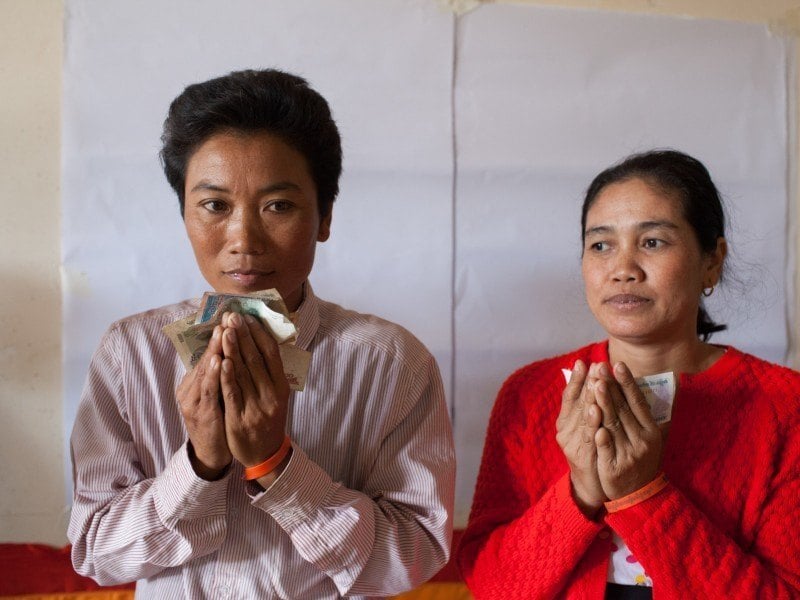
“There’s a stigma in society that we’re a curse,” says 26-year-old Feronika, a transgender woman in Palu, Indonesia. “But we’re perfect the way we are. We have two hands just like everyone else, and we’ll use them to improve our society. If people think we’re a curse, we’ll be a blessing in return.”
For Feronika, this unbridled hope and positivity has been hard-fought. Growing up as a trans woman in a small village outside the religiously conservative city of Palu, she endured years of discrimination, continuing through university.
But on September 29, 2021, Feronika found a new way to turn these curses into blessings: She became a legal advocate for justice.
Feronika is one of 35 people to complete a ‘paralegal’ training led by AJWS grantee organization Indonesia Women’s Association for Justice in Central Sulawesi (locally known as Apik Sulteng). Across Indonesia, paralegals are legal guides that help survivors of violent crimes file claims with police, provide mental health support and help them navigate the daunting legal process. And they are an absolutely critical part of Indonesia’s criminal justice system.
For years, survivors of domestic and sexual violence in Palu have had disturbingly few places to turn for justice. For many of these survivors — among them LGBTQI+ people, women, adolescent girls, people living with disabilities and people living with HIV/AIDS — reporting crimes to Indonesia’s complex, woefully corrupt and widely distrusted criminal justice system is a terrifying prospect. What’s more, the prospect of the stigma and social shaming they will likely face after speaking out can be enough to persuade them to remain silent forever.
But Apik Sulteng’s paralegal training program is helping survivors break this silence by giving them a trusted guide through the process, and the confidence that justice isn’t just a dream — but a real possibility. The 35 newly-minted paralegals are all members of Palu’s most vulnerable communities — the same groups that are most often the target of discrimination and sexual violence. They have personal experience with what their clients have suffered. The fight for justice is theirs as well.
Disaster Strikes, Inequality Deepens
Founded in 2009 and working in the region surrounding Palu on the Indonesian island of Sulawesi, Apik Sulteng has always been dedicated to supporting the survivors of gender-based violence, while chipping away at Palu’s deeply patriarchal culture — which manifests as men dominating political, public and family life. Women have, according to Apik Sulteng, “a double-discrimination position in society”—they’re vulnerable to violence while also lacking power over decisions that affect their everyday lives.
These issues skyrocketed in 2018 when disaster struck Palu.
On the evening of September 28, 2018, a massive earthquake triggered a tsunami that leveled entire neighborhoods, likely killing tens of thousands — far more than the official count of 4,340, according to local aid workers. The disaster took an immeasurable toll on the whole population of Palu, and has had an especially devastating effect on people already marginalized by society, including s women and girls, LGBTQI+ people, sex workers and people living with disabilities: Rates of domestic violence, rape and other sexual crimes have surged, as the community bucked under the stress of the disaster.
Harlin Sabani, Apik Sulteng’s program manager, has watched this rise with concern. “The impact of the tsunami, and then the COVID-19 pandemic, hit us all. Violence is happening more and more — and these cases are dominated by violence against women and transgender people,” Harlin says.

A Personal Fight for Paralegals
Harlin knows these threats too well. Beginning in 2015, the future-activist worked as a sex worker on the streets of Palu.
“I experienced a lot of violence during that time,” says Harlin. “But in that same year, I met friends from Apik Sulteng through other community organizations, and I began learning how to advocate for myself. It’s here that I found real empowerment.”
That personal trauma — like for so many of the 35 new paralegals — made Harlin want to prevent other people from experiencing the same. Harlin’s mission to launch Apik Sulteng’s paralegal training program was born from this same desire to protect Palu’s most vulnerable people. The program includes studies of local Indonesian law surrounding sex crimes and the legal process through which these cases are processed, training on how to best record a survivor’s account so it can be used in court, and basic mental health counseling for survivors.
Survivors can reach Apik Sulteng, and easily get an assigned paralegal, through a 24-hour hotline. Once connected, and if the survivor is ready, the paralegal will guide them through the daunting process of reporting the crime to the police, documenting the crime they experienced, and understanding their rights. But just as critically, these paralegals will be there — as members of the same community — to support the survivors through their darkest moments. The organization also runs a safe house for survivors who need a place to stay without having to fear another attack.
In order to ensure these new paralegals can carry out their critical work sustainably, Apik Sulteng successfully advocated for a governmental body, the Office of Women’s Empowerment and Child Protection, to finance their handling of cases.
Changing Palu, One Case at a Time
In the few months since becoming certified, Palu’s newest paralegals, including Feronika, have assisted with two cases of sexual violence against women, one case of abuse against a woman living with disabilities, and two cases of violence towards transgender women. Thanks to the support and guidance of these paralegals, three of these cases are already awaiting court dates.
The Apik Sulteng community believes that by helping survivors develop the courage to fight for justice, they can also, as Harlin says, “change the patriarchal and heteronormative way of thinking in our society — showing that vulnerable groups are also capable, equal and have constitutional rights that are protected by the state.”
“We know that the most vulnerable people in our community often become victims of violence,” says Feronika. “Most of them don’t have the knowledge or courage to speak up and fight evil. This group of paralegals are on the frontlines of our communities. No one else is helping. We’re fighting acts of violence and discrimination — and we’re fighting against that stigma.”









